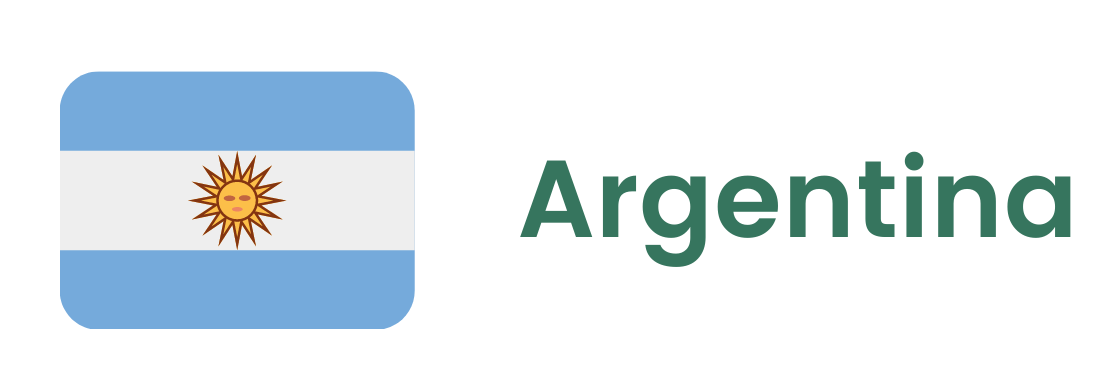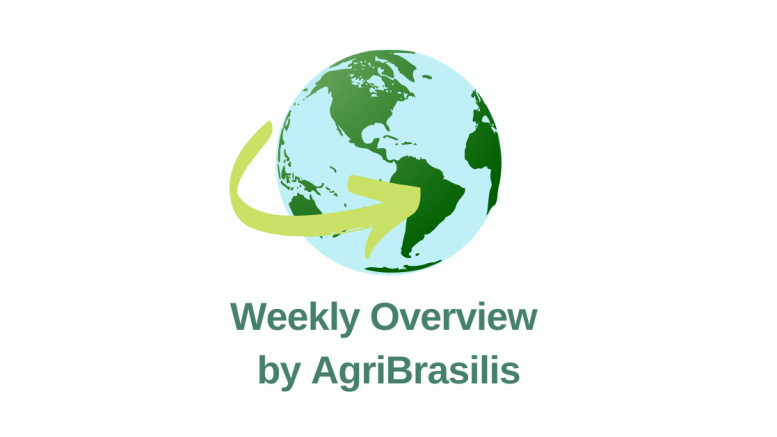Smuggling Affects More Than 50 Thousand Families in Bolivia

Argentina loses its leadership in world soybean meal exports, after 25 years as world leader. The main reason was the drought, which reduced production by 22%, reaching 23.6 million tonnes, according to the Rosário Stock Exchange. The country now ranks second in soybean meal exports and is the fourth-largest producer in the world. (BCR)

Quinoa farmers in Bolivia declared an emergency situation. Through an open letter, they requested to the president of the country, Luis Arce Catacora, to close the border with Peru and denounced that smugglers sell the product illegally in the neighboring country. Organic quinoa in Bolivia represents 80% of the total quinoa production in the country and smuggling affects the production of more than 50 thousand quinoa-producing families in the Southern Altiplano region. (Cabolqui)

According to projections of Cepea and the Brazilian Confederation of Agriculture and Livestock, Brazilian agribusiness GDP will continue to grow in 2023, with an increase of 35.9% compared to the previous year, reaching US$ 524.6 billion in 2023. The increase will be driven by growing global demand for food and biofuels and the expansion of the livestock sector. (Cepea; CNA)
Raízen staterd operating its new factory to produce second-generation ethanol from biomass. The factory is located in the Bonfim Bioenergy Park, in Guariba, State of São Paulo. The total investment was US$ 237.5 million and the production capacity is 82 million L/year, bringing the company’s total capacity to 114 million liters. (Raízen)
Minister of Agriculture and Livestock, Carlos Fávaro, invited the Brazilian agricultural sector to change the vision of the country’s agribusiness during the international animal protein sustainability campaign at Anuga, the largest food fair in the world, in Cologne, Germany. “We are an example of sustainability. This is the biggest challenge today: changing the rhetoric of thinking that Brazilian farmers produce in a way that is harmful to the environment. That is a lie. We produce with respect for the environment. It is our challenge. Campaigns like this, which aim to clarify, bring the truth, call our buyers and partners to visit Brazil and learn about the reality of our production, make it possible to expand business opportunities and do a lot of good for our economy and for Brazilians”, commented the minister. (Brazilian Animal Protein Association)
State of Rio Grande do Sul is the state that most encourages irrigation in Brazil. Badesul, the state’s development agency, is the first in the BNDES ranking of institutions accredited in the Financing Program for Irrigated Agriculture and Protected Cultivation (Proirriga). Between January and September 2023, 96 operations were approved and US$ 10.7 million was released for irrigation projects. (BNDES)
Brazilian rice exports reached 1.37 million tonnes between January and September 2023, an increase of 5.8% in volume and a 22.2% increase in revenue compared to the same period in 2022, totaling US$ 481.3 million.
Bunge signed an agreement to acquire CJ Selecta, a company specialized in the production of concentrated soy protein. The product has several applications, mainly in aquaculture, where it is used as a substitute for fishmeal, but also in various livestock sectors. Completion of the transaction is still subject to the fulfillment of closing conditions. (Bunge)
Guilherme Piai Silva Filizzola took charge of the Department of Agriculture and Supply of the State of São Paulo. (Official State Gazette)


Chile seeks to expand exports of agricultural products to Asia. According to Esteban Velenzuela, minister of agriculture, it is essential to strengthen ties with South Korea, China and Vietnam, and to be able to introduce kiwi, in addition to strengthening exports of table grapes and cherries, peaches and other Chilean fruits, as well as white and red meats. (SAG; Ministry of Agriculture)
Ministry of Agriculture gave US$ 10.3 million in Irrigation Act bonds to irrigation organizations and canals in the O’Higgins and Maule regions. (Ministry of Agriculture)

Phina Biosoluciones and Agroince from Colombia developed a technology based on using the waste fibers from oil palm and transforming them into animal feed with good bromatological quality. The technology adds value to waste, reducing the environmental impact of palm oil production and generating extra income for farmers. (Phina Biosoluciones; Agroince)


A study performed by the Scientific University of Southern Peru revealed that in some areas in the north of the country, cocoa beans have cadmium levels above those allowed by international standards, due to cultivation in areas close to places where there is active mining. (Universidad Científica del Sur)
High temperatures did not allow the blueberry crop to receive the necessary cold hours to develop the flowering process, causing the fresh blueberry campaign to be delayed. Hortifrut Perú projected that exports will be reduced by approximately 10% in the 2023/24 harvest compared to the previous one, which exported 34 thousand tonnes. (Hortifrut Perú)
Unlike other crops, grape production in Peru will benefit from El niño, as it will help to control diseases stimulated by humidity. In the first six months of 2023, production increased by 10%. Currently, Peru is the largest exporter of grapes in South America. (Ministry of Agriculture)
![]()
Uruguay and the World Bank have agreed on the terms of a multilateral loan contract that will reward the country with lower interest rates if it reduces the intensity of methane emissions in beef production by 1% in relation to the commitments made in the Paris Agreement. The potential value of the interest savings will be US$ 12.5 million over the life of the loan. The contract will be presented in November for approval. (Ministry of Economy and Finance; Ministry of Agriculture)

READ MORE:

